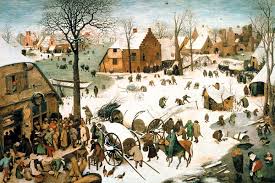First, we must acknowledge that the word “holy day” is the root of the word “holiday.” Days set aside for religious celebrations like Christmas , our ancient and Christian calendars are where our holidays got their start. A fascinating look at this and many other “Christian” traditions can be found in George Barna’s book Pagan Christianity. It is thought that many of our holiest seasons, including Christmas and Easter, sprang from pagan holidays.
Greek meaning of X, Xmas and Christmas essentially mean the same thing:
Christ + mas = Christmas
Second, the comment that “Modern society takes the Christ out of Christmas” is frequently made in response to questions of this nature. Last year, we featured an amazing advertising campaign with the subject “Christmas Starts With Christ.”
The fact that so few people are aware that the X that is inserted during Christmas actually has Christian and religious origins intrigues me. It’s explained nicely in this passage taken from a longer essay on criovoice.org.
In the church, acronyms serving as Christian emblems have a long history. Early Christian emblems included the letters of the Greek word “Christ,” which was used to write the New Testament, or other titles for Jesus. The initial two characters of the word Christ (cristoV), for instance, or as it would be the Greek characters chi (c or C) and rho (r or R) are the first two letters of the word Christ (cristoV, or as it would be written in ancient manuscripts, CRISTOS). The chi-rho monogram, which was made with these letters in the early church (see Christian Symbols: Christmas Ornaments), was included on the official battle flag of Emperor Constantine by the fourth century.
Another illustration is the fish emblem, which dates back to the early Christian era and was discovered etched on the walls of the Rome catacombs. It probably started out as a play on the initial letter of several of Jesus’ titles (Jesus Christ Son of God Savior). These first letters, when put together, formed the Greek word for fish (icquV, ichthus).
It is impossible to determine the precise origin of the single letter X for Christ. There is insufficient evidence to support the theory that it started in the first century AD together with the other symbols. Some argue that it became widely used by the thirteenth century, along with a plethora of other Christian symbols and abbreviations, as well as a range of Christian concepts that were prevalent during that era. But once more, there isn’t much data.
Thus, there isn’t a big plan to weaken Christianity by encouraging people to use Xmas rather than Christmas. It is not a contemporary idea to try to make Christmas a nonreligious day, nor is it a ploy to encourage the commercialization of the Christmas season. Its roots are deeply ingrained in the Church’s legacy. It’s just another way to pronounce Christmas, based on a lengthy tradition of religious symbols being shortened.

Sure thing! Back in the 15th century, Christmas was already a big deal. But printing stuff was a real hassle—everything was done by hand, taking up a ton of time and money. So, to save some cash, the church started abbreviating “Christ” as just C, or even X. Fast forward a bit, and these abbreviations made their way into newspapers and other publications. By the 16th century, “Xmas” was the cool new way to write “Christmas.”
Now, don’t go thinking it’s some modern scheme to water down Christianity or turn Christmas into a non-religious thing. Nope, it’s actually rooted in the church’s history. It’s just a way to say Christmas that’s been around for ages. And get this—the “X” in “Xmas” is meant to be pronounced as “Christmas,” not “exmas.” It’s like saying “Mr.” instead of “mister.”
Understanding this bit of Christian symbolism can help us modern folks chill out during the Christmas season and focus on the more important stuff in our faith during Advent.



